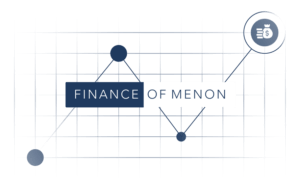Having a written financial plan is crucial, yet only 33% of Americans have one, which indicates a significant gap in financial preparedness. A financial plan isn’t just a document—it’s a roadmap that guides your financial decisions, helping you achieve your goals, whether that’s buying a home, saving for retirement, or funding your children’s education. A written plan also shows intention and commitment and increases your chance at accomplishing your goals.
A financial plan isn’t just a document—it’s a roadmap that guides your financial decisions, helping you achieve your goals, whether that’s buying a home, saving for retirement, or funding your children’s education.
Here are key lessons on why having a financial plan can make all the difference:
- Clarity and Direction: A financial plan provides clarity about your current financial situation and where you want to go. It helps you set clear, measurable goals and outlines the steps needed to achieve them. Without a plan, it’s easy to drift financially, making decisions that may not align with your long-term objectives.
- Improved Decision-Making: When you have a financial plan, your decisions are guided by a strategy that considers your income, expenses, savings, and investments. This reduces impulsive spending and encourages disciplined financial habits, such as regular saving and investing.
- Risk Management: A well-rounded financial plan includes strategies for managing risks, such as insurance, emergency funds, and diversification of investments. This preparation can protect you from financial shocks, such as job loss, medical emergencies, or market downturns.
- Peace of Mind: Knowing that you have a plan in place can reduce financial stress. You’ll have a better understanding of your financial future, allowing you to focus on other aspects of your life without constant worry about money.
- Accountability: A written financial plan holds you accountable. By regularly reviewing your plan, you can track your progress toward your goals, make necessary adjustments, and stay motivated. It turns your financial aspirations into concrete actions.
- Better Prepared for Life’s Changes: Life is full of unexpected changes—marriage, children, career shifts, and more. A financial plan can help you adapt to these changes without derailing your long-term goals. It’s a dynamic document that evolves as your life circumstances change.
Understanding these concepts and putting them into practice through a written financial plan can set you on a path to financial security and success. It’s not just about wealth accumulation; it’s about creating a stable and fulfilling financial life.
So what does a financial plan contain?
A financial plan is a comprehensive document designed to provide a clear path for managing your finances effectively. Here’s what we cover in a well written plan:
1. Personal and Financial Goals
Short-Term Goals: These might include saving for a vacation, paying off credit card debt, or building an emergency fund.
Long-Term Goals: These are more significant objectives like buying a home, funding children’s education, or retiring comfortably.
2. Current Financial Situation
- Net Worth Statement: A snapshot of your assets (like cash, investments, property) minus your liabilities (such as loans, mortgages, credit card debt).
- Income and Expense Analysis: A detailed breakdown of your monthly or yearly income and where your money is going. This helps in understanding your cash flow and identifying areas for improvement.
- Emergency Savings: A fund that covers 3-6 months’ worth of living expenses to handle unexpected events like job loss or major repairs.
- Compensation and Benefits Analysis: Equity Compensation can present hurdles with taxation and risk of concentration. A complete analysis of workplace comp and benefits fits into the current financial picture.
3. Debt Management Plan
- Debt Strategies: Outlines methods for paying down debt or leveraging based on interest rates and other factors. Debt consolidation, prioritizing high-interest debt, or setting up a payment plan.
- Credit Score Management: Ensures your credit score remains strong, which can impact your ability to borrow at favorable rates. Secure household credit lines for additional household safety net.
5. Investments
- Investment Policy Statement (IPS) : Establish an IPS based on goals, risk tolerance and financial profile.
- Asset Allocation: Uncorrelated asset allocation across fixed income and growth oriented investments. The mix of investments will align with your risk tolerance and time horizon.
- Investment Goals: Clear targets for what your investments should achieve, such as retirement income, college funding, or wealth accumulation.
- Diversification and Tax Strategy: Actively seek spread of risk across different types of investments while reducing tax liability.
6. Retirement Planning
- Retirement Goals: Defines the lifestyle you want in retirement and how much money you’ll need to support it. Plan backwards from a target date/year for retirement.
- Retirement Accounts: Analysis of existing retirement accounts (401(k), IRA, etc.) and contributions to ensure you’re on track.
- Pension and Social Security Planning: Includes strategies for maximizing benefits from pensions or Social Security.
7. Insurance Planning
- Asses risk and requirement based on individual circumstances across Life Insurance, Health Insurance, Property and Casualty Insurance, and Disability and Long-Term Care Insurance
8. Tax Planning
- Tax-Efficient Strategies: Includes ways to minimize your tax liability through deductions, credits, and investment strategies.
- Tax Projections: Estimates future tax obligations to help with financial planning.
9. Estate Planning
- Wills and Trusts: Outlines how your assets will be distributed after your death and ensures that your wishes are carried out.
- Beneficiary Designations: Ensures that all accounts and insurance policies have the correct beneficiaries.
- Power of Attorney and Healthcare Directives: Assigns someone to make financial or medical decisions on your behalf if you’re unable to do so.
What’s next after the plan?
A financial plan should be reviewed regularly to ensure it still aligns with your goals and circumstances. Any adjustments may be needed due to changes in income, expenses, goals, or life events. At Finomenon Investments, we bring structure and process to how this is done through our Annual Relationship Service and meet our clients twice every year to review the performance of the plan and investments (Q1 and Q3).
Interested in learning more about how we work with clients when building a financial plan? Book a call today!
Disclaimer: Nothing here should be considered an investment advice. All investment carry risks, including possible loss of principal and fluctuation in value. Finomenon Investments LLC cannot guarantee future financial results






